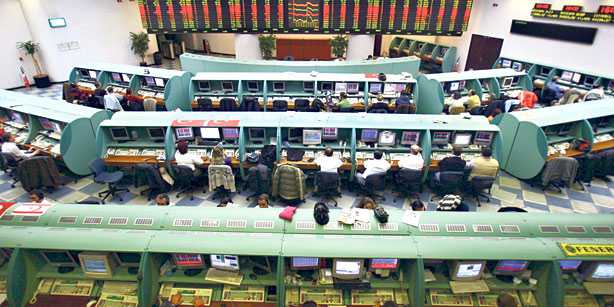Lucrative days in capital markets have led to successive initial public offerings (IPO) these days, with the number of public offerings expected to exceed 30 by the end of this year.

The İstanbul Stock Exchange (İMKB) and the Capital Markets Board (SPK) started an IPO campaign in May under the auspices of the government in order to increase the number of companies listed on the bourse. Following Torunlar GYO, one of Turkey’s largest real estate investment partnerships, İhlas Yayın Holding and Katmerciler have been offered to the public over the last three weeks.
It seems that the spring season in IPOs will continue as the markets move upward. But what is an IPO and how does the market work in Turkey? When a company reaches a certain stage in its growth, it may decide to issue stock to the public, known as an IPO. The goal may be to raise capital or to provide liquidity for existing shareholders as well as a number of other reasons.
According to the İMKB, there are two markets for trading stocks on the İMKB: the stock market and the Emerging Companies Market (ECM). Companies to be traded on the stock market may choose to offer part of the stock representing existing capital through the sale of shares or to increase capital, restricting the pre-emptive rights of shareholders, or apply both methods concurrently.
The shares eligible for trading on the ECM include those issued by joint stock companies in capital increases by partially or fully restricting the pre-emptive rights of the shareholders, and in the case of secondary offerings, the shares acquired by exercising the rights attached to such shares. The shares of current shareholders that are not included in the ECM directory may not be traded on the primary or secondary market of the ECM; yet, there are no restrictions on the purchase of the shares by the present shareholders from the ECM primary or secondary market and subsequent sales thereof. This restriction aims to channel the funds raised by issuing shares on the ECM to the company and directly contribute to the financial structure of the company.
A frequently asked question arises when the number of IPOs is increasing. Is there enough demand that can support the companies rising on the İMKB day by day? It is true that some companies create demand for their own shares, only to have the İMKB slump afterwards, as evinced by İMKB data. When considering the previous periods in the İMKB where the number of IPOs skyrocketed, the İMKB data show the bourse indices started ebbing. Time periods like the years 2000 and 2007-2008 are some examples of this case when the bourse steeply declined.
Whether the same tendency will prevail again is a matter of question, though. Experts say it is too early to talk about a downturn in the market. Furthermore, many companies are waiting their turn to be traded on the İMKB, which means new entries to the bourse are not over yet.
Campaign calls companies in
The İMKB and SPK have started a campaign that aims to increase interest in IPOs and the number of companies traded on the İMKB to 1,000 by 2023. SPK President Vedat Akgiray said more than 40 companies have applied for an IPO this year, making 2010 the year with the highest number of IPOs launched in Turkey. Akgiray pointed to current economic data and said that Turkey’s gross domestic product (GDP) has reached 1.5 percent of the world’s GDP, but when looking at the İMKB, it only represents 0.4 percent of the entire volume of the world’s stock exchanges. He said they have the responsibility to increase this stake and have therefore started a promotion to attract more companies to the İMKB. The SPK president stated that there are more than 300 companies listed on the İMKB and that by 2023 they want that figure to reach 1,000.
Current İMKB data show that 18 companies launched IPOs between January and November of 2010. Lokman Hekim Hospitals applied on July 5 for an IPO to trade 20 percent of its paid-in capital of TL 11.13 million. Approximately one month later, on Aug. 17, Emlak Konut GYO applied to float 25 percent of its paid-in capital, a total of TL 2.5 billion. Akfen GYO, Global Securities and Despec Computer all applied for an IPO to trade 28.75, 33.33 and 39.35 percent of their paid-in capital.
The price of one share of Uyum Food, a large supermarket chain, was set at TL 8.75 and a pre-IPO was conducted on Nov. 4-5. Investors showed strong interest in the food company, which expects to raise TL 52.5 million in capital. The company’s general manager, Sait Koç, said they will use these funds to open more stores. He added that the food sector will be dominated by 10 big chains in 10 years’ time and that they therefore aim to grow through the IPO. Koç noted that they expect to have 73 stores in 10 years, up from their current 33.
Investors also showed strong interest in the Katmerciler pre-IPO, which was held on Nov. 3-5. A total of 3,122 investors applied to buy a share in Katmerciler — a nominal demand of TL 9.29 million. According to the Public Disclosure Forum (KAP) of the İMKB, 85 percent of the current demand for Katmerciler, where the IPO price is listed as TL 6, was from domestic individual investors. A 24 percent share of Katmerciler started to trade on the İMKB on Nov. 11.

Leave a Reply